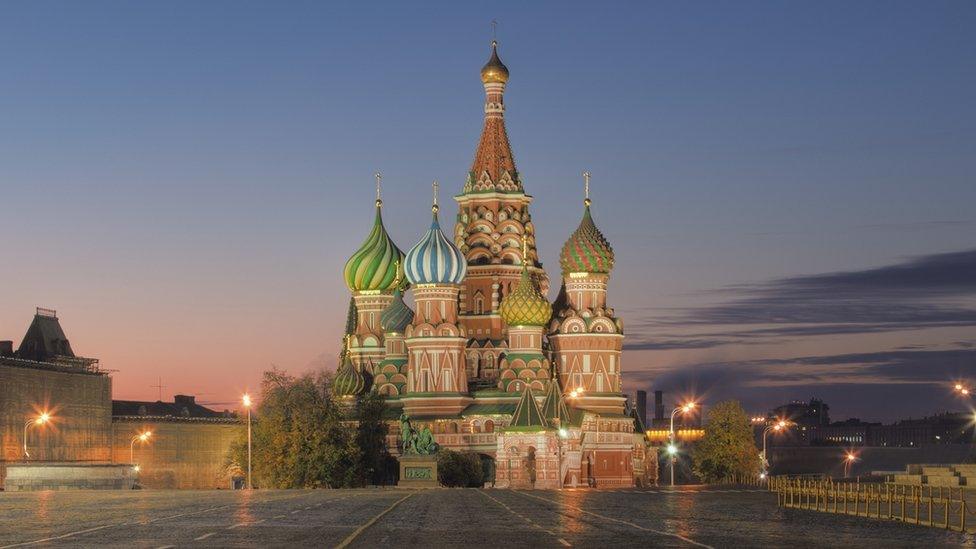Ukraine war round-up: Russia bans UK journalists and inside 'dead city'
- Published
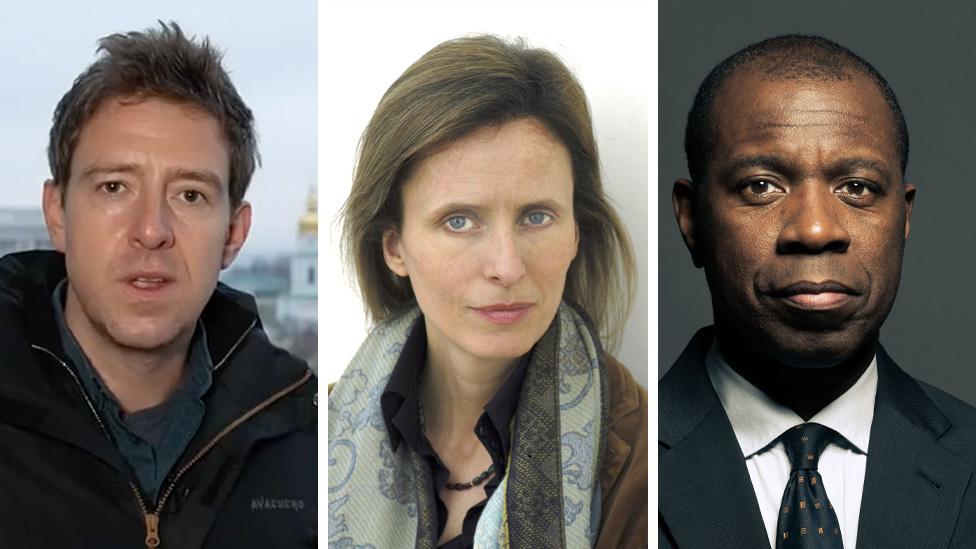
BBC correspondents Nick Beake, Orla Guerin and Clive Myrie have all reported on the war inside Ukraine
Russia has barred a number of top UK-based journalists and defence figures, in response to UK sanctions on Russian individuals.
The list of names includes several BBC journalists, including Clive Myrie who has reported extensively from Ukraine. None of them are currently based in Russia. The BBC's Director General, Tim Davie, is also on the list.
The Guardian's Shaun Walker, who spent many years reporting from Russia, and Sky News' Stuart Ramsay are also on the list.
In a statement, Russia's foreign ministry accused the journalists on the list of disseminating "false and one-sided information".
Read more on why the journalists and other figures were barred here.

UK pursues release of death penalty Britons
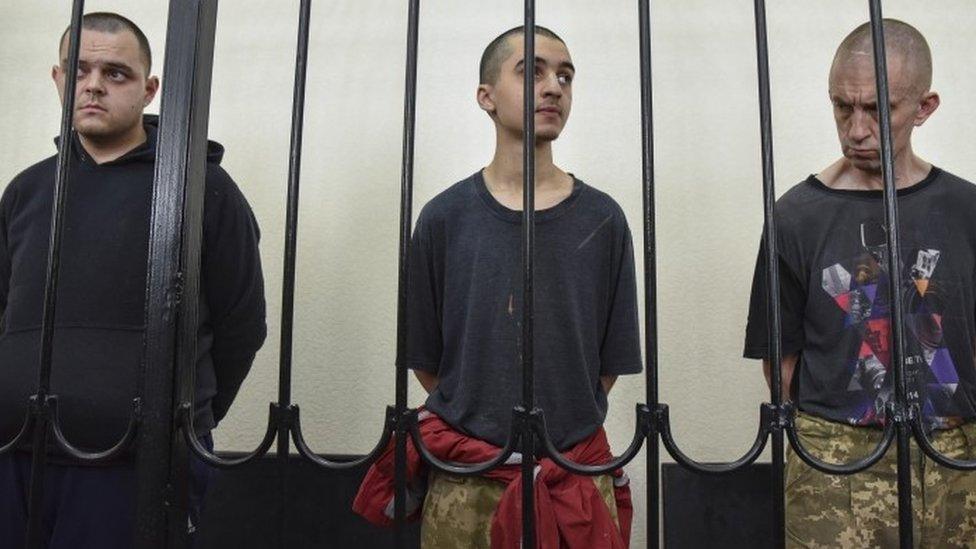
Aiden Aslin (L), Saaudun Brahim (C) and Shaun Pinner (R) were sentenced to death by an unrecognised court
The UK says it will do everything it can to free two Britons who were sentenced to death last week by the self-proclaimed Donetsk People's Republic (DPR) - a Russian proxy-state in eastern Ukraine.
Aiden Aslin and Shaun Pinner, together with Moroccan Saaudun Brahim, denied charges of being mercenaries.
The men say they were longstanding members of the Ukrainian military, and should be immune from prosecution under the Geneva Convention - the international set of rules which regulates armed conflict.
UK Foreign Secretary Liz Truss told the BBC the government would do "whatever is necessary" to secure the release of the two Britons.
"I am doing everything I can, in the best way I can - in the way that I judge is most effective - to deliver these people's release," she said.
She didn't rule out the possibility of negotiating directly with the leadership of the unrecognised DPR.
But as the BBC's James Landale writes, the UK seems to have decided not to negotiate with Russia over the pair's release for fear of a bilateral confrontation between London and Moscow.

Inside Ukraine's 'dead city'
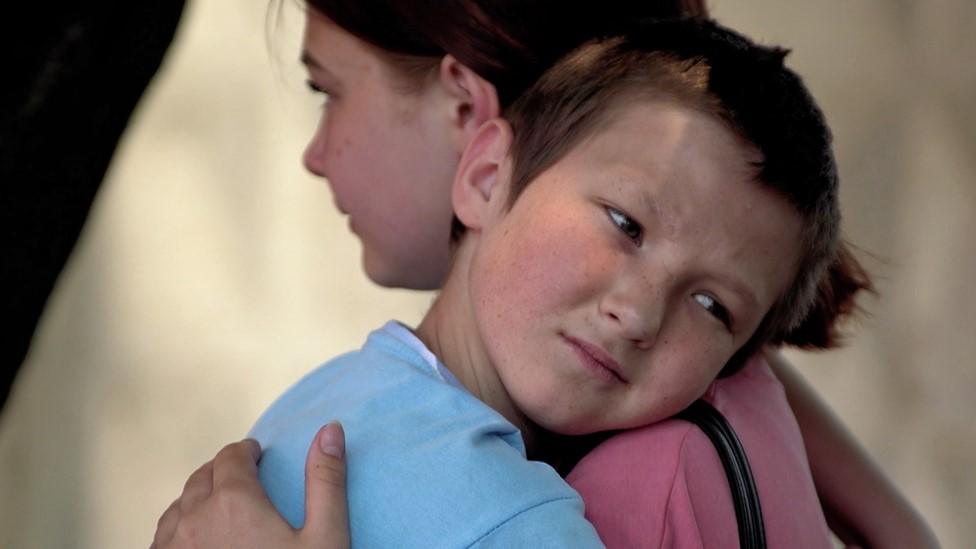
Children comfort each other while waiting for evacuation from Lysychansk
Russia says it has offered Ukrainian fighters sheltering in a chemical plant in Severodonetsk the chance to surrender, as fighting in the city continues.
Civilians trapped in the industrial zone will also be given the chance to evacuate through a humanitarian corridor, Russia's defence ministry said, although similar plans have often failed in the past.
Severodonetsk and its twin city Lysychansk are the current epicentre of the battle for Ukraine's eastern Donbas region. They're important because if Russia takes them, it will control the whole of Luhansk - one of two areas which make up the Donbas.
Last week, Ukrainian President Volodymyr Zelensky described them as "dead cities", because of the level of destruction Russia's bombardment has caused.
Our correspondent Orla Guerin managed to reach Lysychansk, where she found a city in ruins.
"In Lysychansk, if you are alive, it is a good day," regional police chief, Oleh Hryhorov, told her.

Fossil fuel funding is 'delusional'
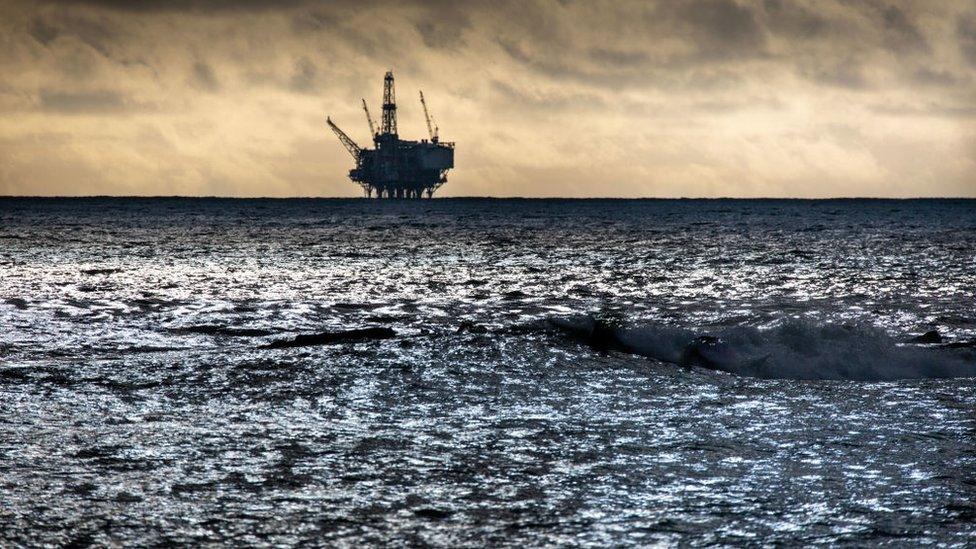
The energy crisis caused in part by the war in Ukraine has led to a "perilous doubling down" on fossil fuels by the world's major economies, according to UN Secretary General Antonio Guterres.
The global energy industry has been hugely affected by Russia's invasion of Ukraine, as countries try to reduce their reliance on Russian oil and gas.
But there are fears this could lead to an increase in the use of coal as an alternative source of energy, as well as new investment in oil and gas projects to replace Russian imports.
But Mr Guterres said new funding for fossil fuel production was "delusional", and that more coal would only reinforce the "scourge of war, pollution and climate catastrophe".
Read more about Mr Guterres' comments in this article by our environment correspondent, Matt McGrath.

Russians and Belarusians can play at US Open
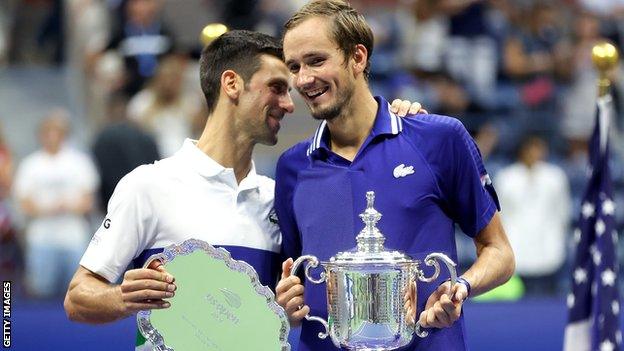
Daniil Medvedev won his first Grand Slam title by beating Novak Djokovic in last year's US Open men's singles final
The US Open will allow Russian and Belarusian players to compete later this year after deciding not to follow Wimbledon's lead in banning them.
Players from the two nations will have to compete under a neutral flag at the final Grand Slam event of the season.
It means Russian men's world number one Daniil Medvedev can defend his title in New York.

War in Ukraine: More coverage

Related topics
- Published13 June 2022
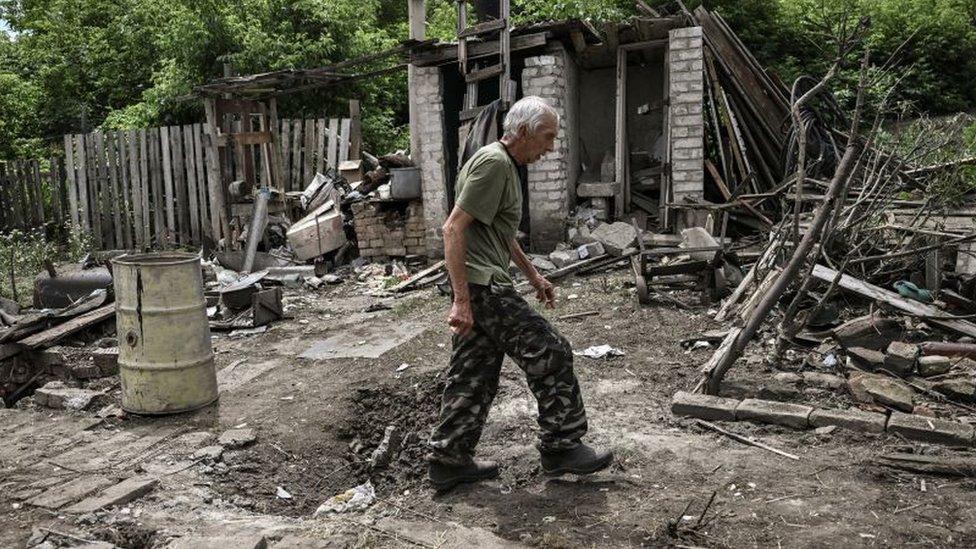
- Published26 January 2023
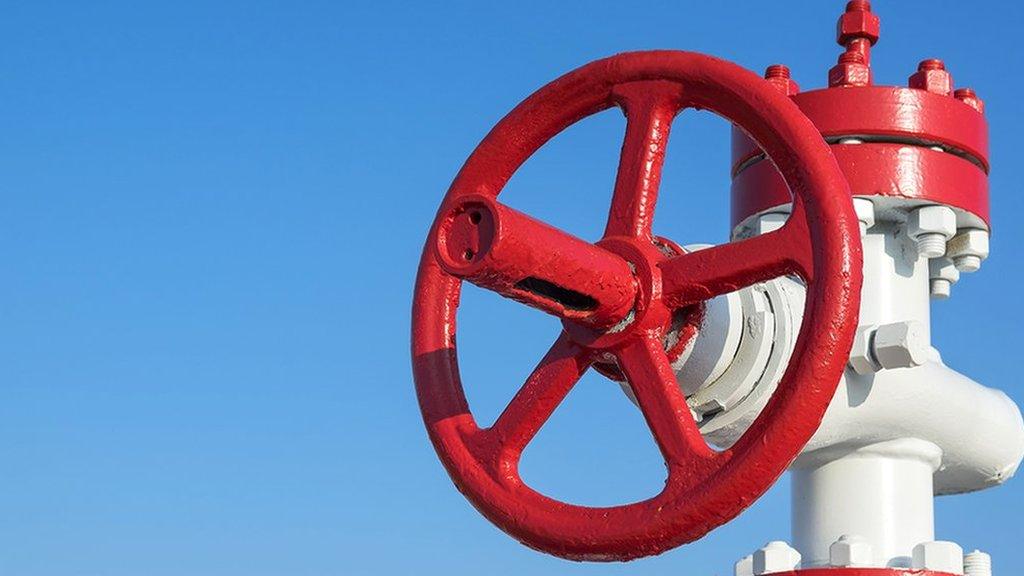
- Published23 February 2024
